Southwest Airlines has completely upended – and some would say, destroyed – its business model. They’ve started charging checked bag fees. They’re charging for seat assignments, for flights beginning in January 27. They’ve started expiring trip credits, selling basic economy fares, and they’ve devalued their points.
The airline has also done its first company-wide layoff in its history. Even during the pandemic they didn’t furlough workers. And they’ve started financial engineering, selling planes and leasing them back while leveraging their investment-grade balance sheet with stock buybacks.

This is laid at the feet of activist investor Elliott Management, which has taken effective control of the airline’s board despite holding less than 15% of the airline’s stock. They haven’t made money on this investment over the past 15 months of their involvement.
However, Brian Sumers makes the case that Elliott has been good for Southwest. I don’t agree, but there’s certainly a sense in which he is not wrong.
I think this relationship is turning out OK for Southwest (less so for Elliott, which is far from reaching the 12-month stock price target of $49 that it set when it bought its first stake in June 2024; shares closed Tuesday at $31.91). In fact, you might even call me cautiously optimistic about how Southwest has evolved since Elliott’s initial investment.
..But do I really need to remind you how stagnant and risk-averse Southwest had become in the Gary Kelly and early Bob Jordan years? It had become one of those giant, bumbling bureaucracies that Herb Kelleher would have hated, where few people wanted to make a decision, or go against their bosses, for fear of upsetting the status quo. For mid-level executives (I have been told), it was best to just go along with it, because compliant employees would pretty much get to keep their jobs for life.
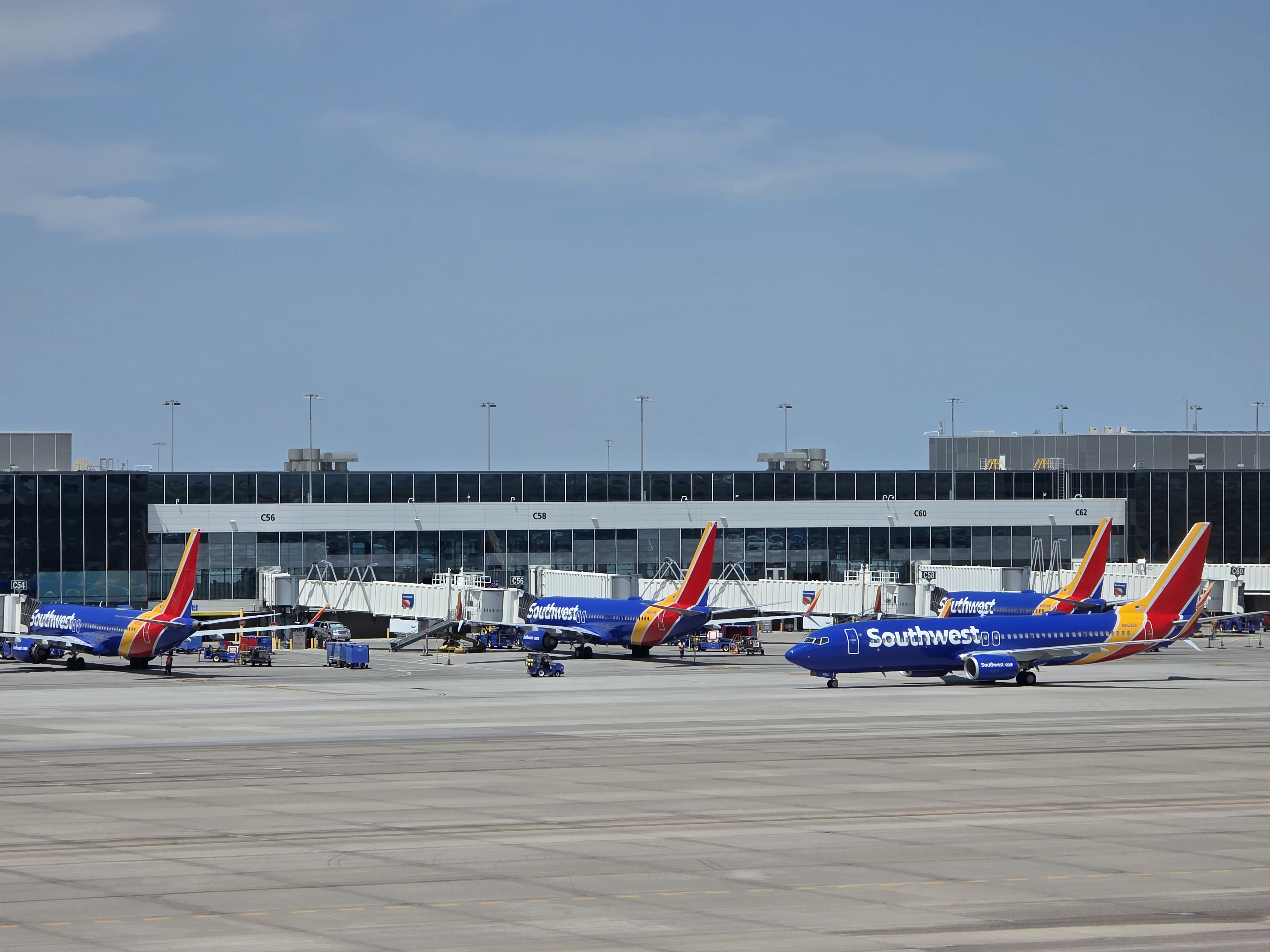
Sumers is clearly correct that Elliott Management has shaken Southwest out of its complacency. Many of the airline’s top employees have left, such as (and I don’t see this as positive):
- Ryan Green — Executive Vice President & Chief Transformation Officer
- Tammy Romo — Executive Vice President & Chief Financial Officer
- Linda Rutherford — Chief Administration Officer (and longtime comms lead)
- Jonathan Clarkson – Vice President & Chief Product Officer
CEO Bob Jordan has stuck around, but his word doesn’t mean much anymore. Jordan went from promising – directly to customers in writing a year ago – that the airline would never impose checked bag fees, to moving to implement those quickly.
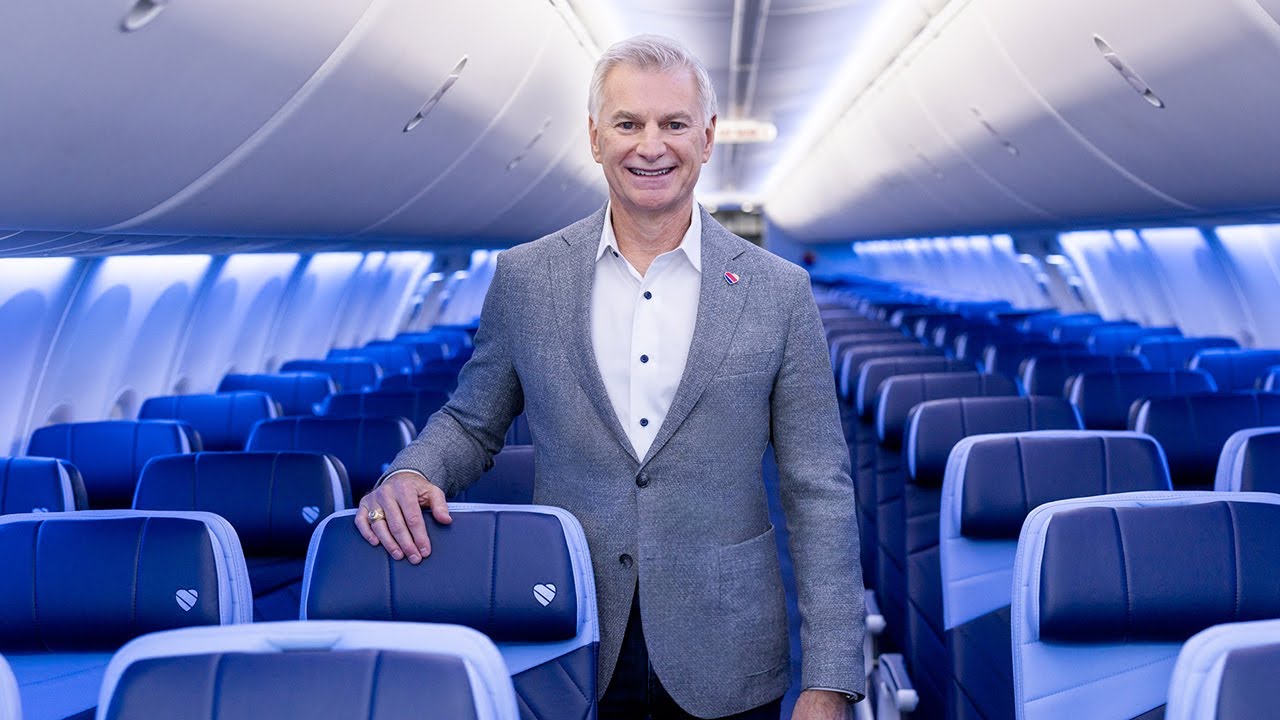
They’re retrofitted planes for extra legroom quickly, with 737-700s not beginning until after Thanksgiving (so they don’t lose seats for the peak holiday rush) but with a plan to finish in only a matter of weeks – in order to hit paid assigned seating in January. Their rollout timeline for free wifi was far more aggressive than American’s. It was important to solve for the complacency!
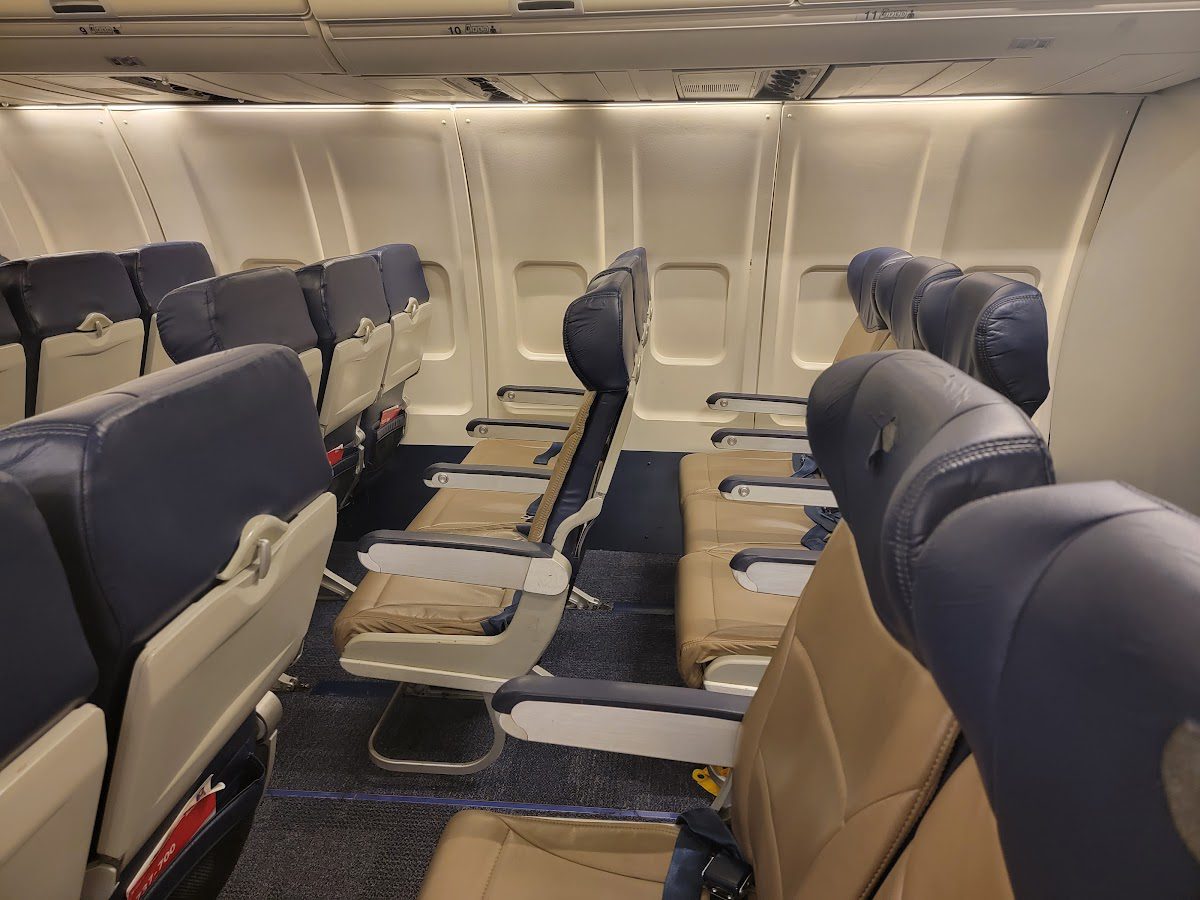
There’s are two different ideas that seem to get conflated a lot with Southwest.
- Southwest became sclerotic, and needed to be shaken out of complacency. This is both true and seemed pretty obvious, and I think most realized it at least after their December 2022 meltdown.
There was no excuse to still be printing out paperwork for each departure! They didn’t get their tech house in order for partnerships. They weren’t selling through online travel agencies which meant missing out on demand from one side of each market in most cases (anywhere their presence was small, sales were largely driven by the larger market, their loads were far less evenly split than most other airlines). It has meant not benefiting from points purchases through travel portals like American Express, Capital One and Citi.
- Somehow Southwest needed Elliott’s prescriptions to return to historical financial performance. The specifics of basic economy and charging for bags and devaluing Rapid Rewards and expiring travel credits, undifferentiating the brand and following a business model of American and JetBlue hardly seems a recipe for financial outperformance when they leave themselves with an inferior product even. “The same but less than” and with less revenue potential doesn’t work.
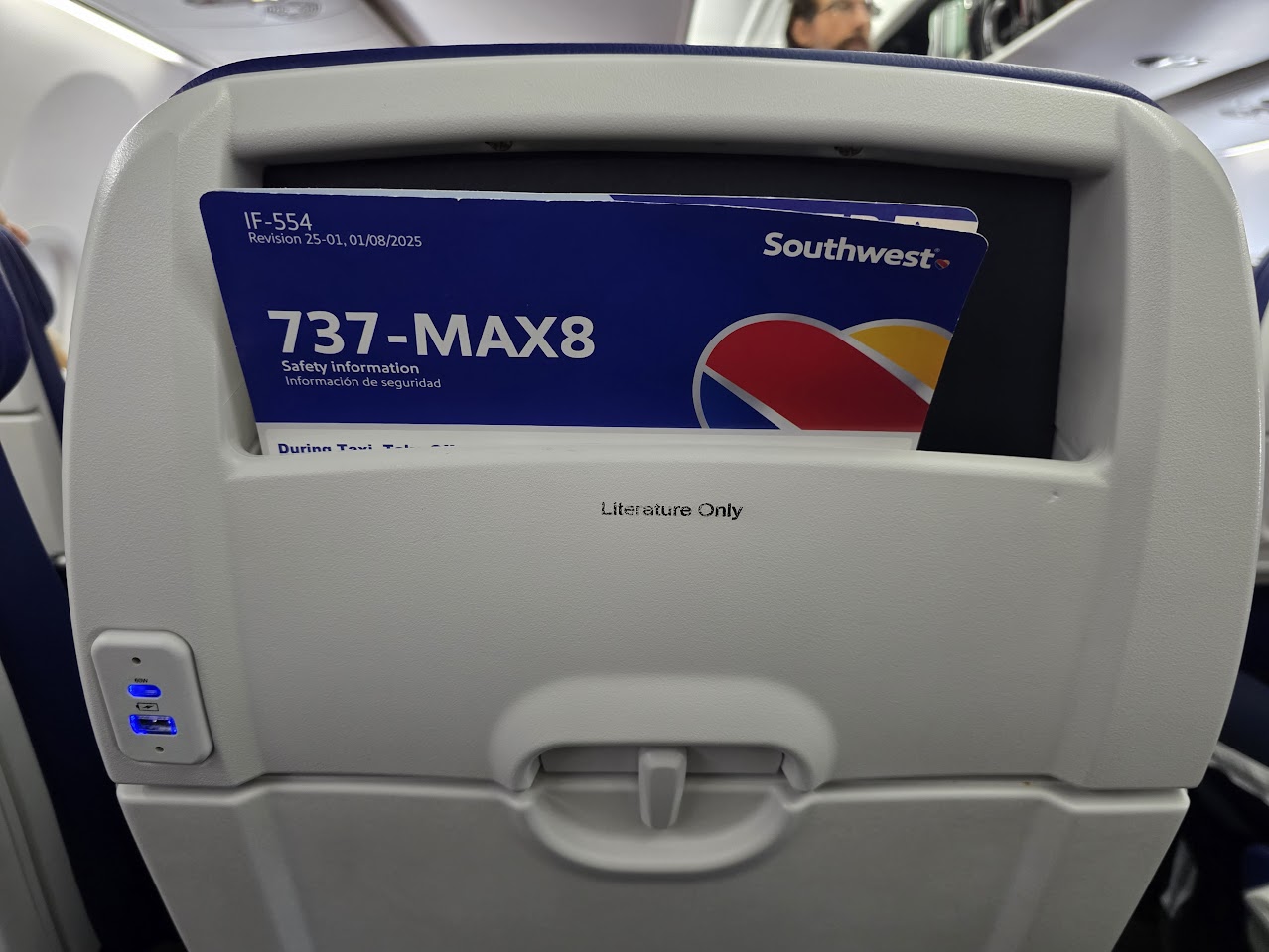
The criticisms of Southwest largely ring true. Elliott employed those to gain control. The specific recipie for the business doesn’t offer much hope.
The truth is Southwest would have been far better off had the Biden DOT’s airfare display rule not been enjoined by the 5th circuit – they could’ve marketed through OTAs without introducing bag fees and basic economy, without being at a price disadvantage, because airfares would have been required to be shown with checked and carry-on bags etc.
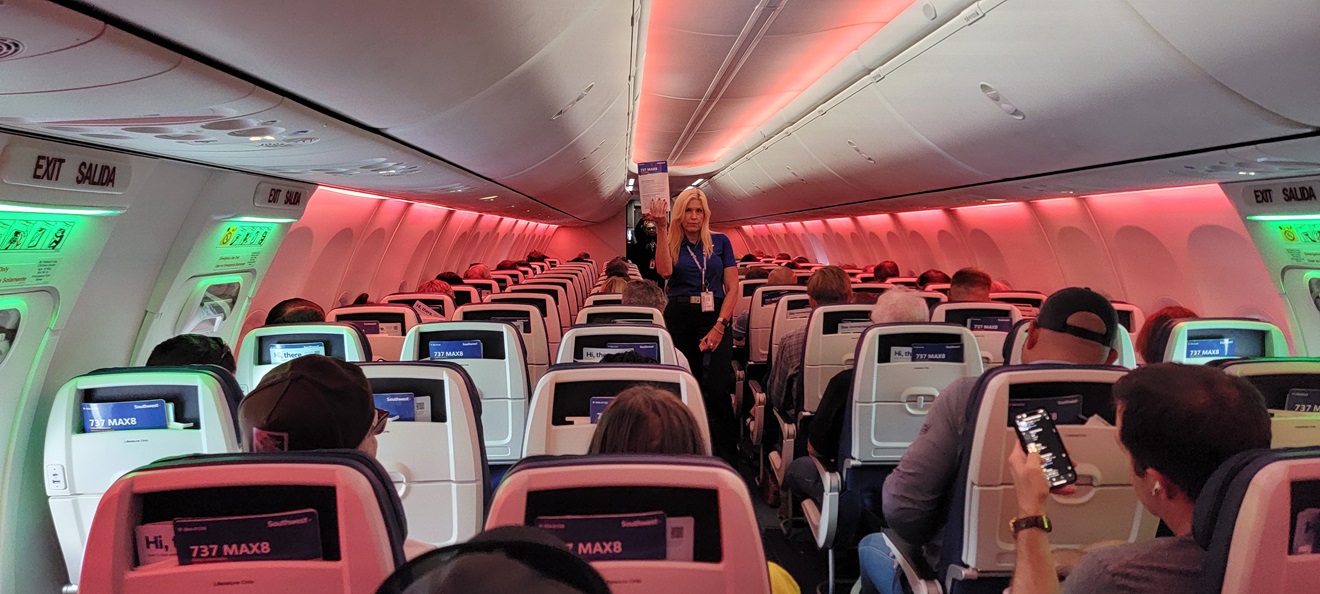
However, Southwest probably will never return to historical valuations because they’re no longer a growth company, having maxed out their model – to grow they need complexity like a more diverse fleet to service different markets and more seating types and lounges but that drives up costs as well and simply involves industry mean-reversion.
A non-complacent Southwest would have moved to online travel agencies earlier, and maybe that means checked bag fees and basic economy so in the absence of the abandoned DOT rule on airfare display, in order for passengers to be comparing ‘apples and apples’ when looking at Southwest prices and competitor prices.
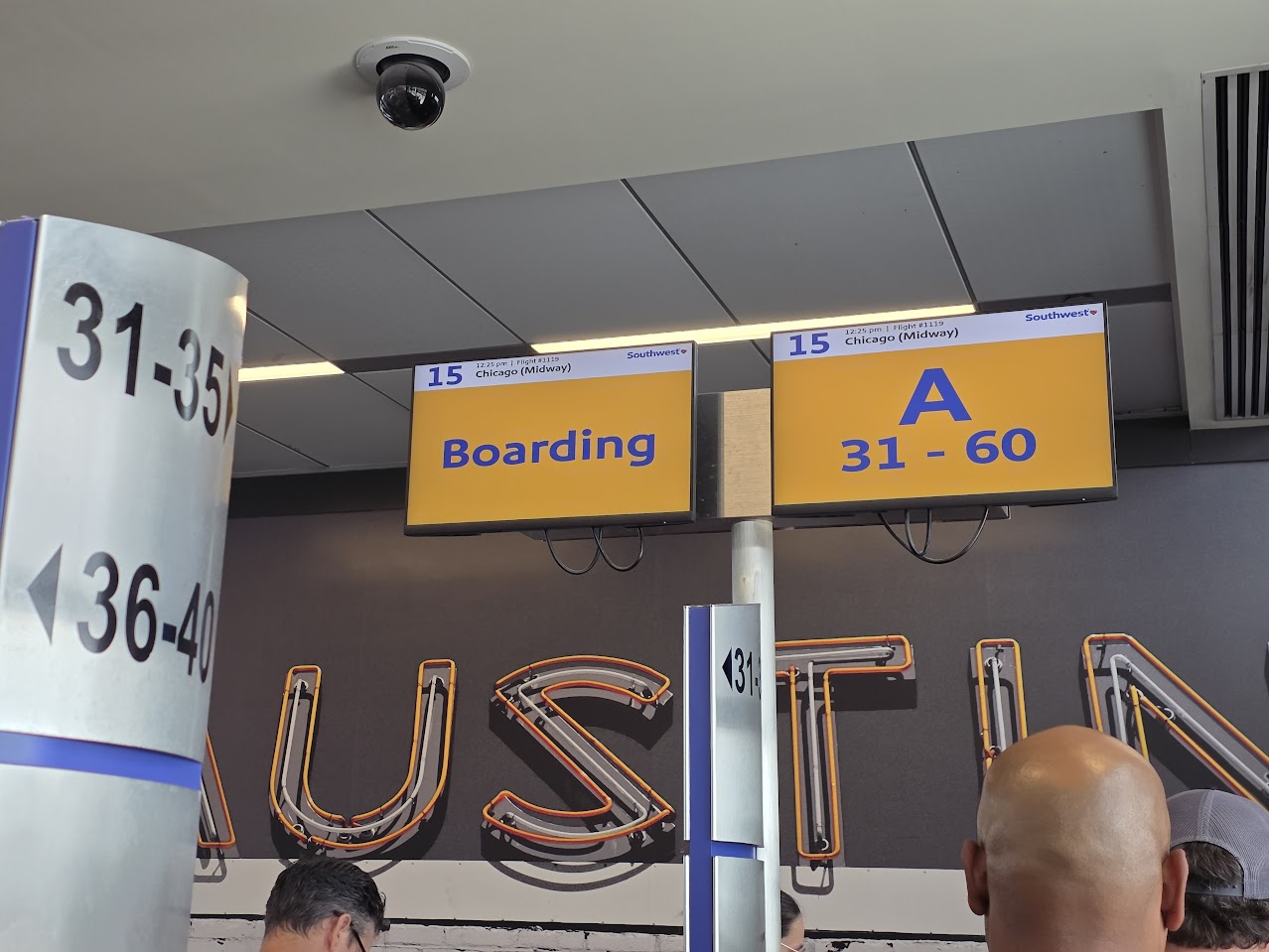
I have to think that a non-complacent Southwest would have diversified its fleet to enter smaller markets and build connecting feed and potentially enter long haul markets as well. It would have added airline partnerships both to sell tickets to its passengers where they wanted to go, and also to deliver the awards its credit card customers desire.
What that all likely means is that the the one thing Elliott has done is shake the airline out of complacency. The prescription may fail, but the lack of a solution is hardly Elliott’s fault because there isn’t one. The reason Southwest isn’t a great investment anymore is that it is now just an airline, but there really wasn’t a viable alternative to that. They’d have been better off recognizing and acting on obvious trends in the market much earlier. But there aren’t really levers to pull that make Southwest the Wall Street darling that it used to be, and the airline that went 47 consecutive years without losing money.

If that’s true, then the airline’s specific changes are almost beside the point, because in the end Southwest’s prospects simply aren’t what they used to be and won’t be again. They’ve just gotten as much out of the model as there was to get. They didn’t know what to do next, so they didn’t do anything. They froze. Now they’re unfreezing but there is no real recipe to replicate past success.
Some of their current changes they should probably make, others not so much, but the sad thing is ‘be like the rest of the industry’ is all there seems to be here – but maybe that’s all there is for a mature carrier like this one.


You can dress it up all you want – Southwest has alienated 95% of their customer base. What made Southwest the best airline for 40+ years has seen this group of bean counters destroy in the past few months. 40+ years of only flying Southworst will end after my last scheduled flight Jan. 21st.
Although I’m a longtime SW user, I don’t care that much. I’ll still pick the best option when I need to fly somewhere. As of today, the ATL-LGA nonstop route is my most frequent, and SW still beats UA on schedule and Delta on price.
It will take a good year to judge the financial impact of the changes. Open seating for sure seem to have become a problem. Maybe boarding “disabled” passengers last (if that’s legal) or requiring medical documentation would have cut down on the abuse.
I purchased my tickets 6 months ago for a flight last week. They clipped me for a 2d bag fee of $35 each ((A lister) for three flights – even though it was FREE at the time of purchase. I switched my last flight back to AA for the last leg for my free bag and a free first class upgrade. Wave goodbye SWA!
Elliott (mis)Management… nuff said. ‘Greed is good’ again (until it isn’t.)
Broke clocks, like @David R. Miller, are right twice a day.
One thing people aren’t really talking about with Southwest’s bag fees is the tax angle. Ancillary fees don’t get hit with the 7.5% federal excise tax that fares do, so shifting revenue into baggage charges isn’t just about new money, it’s about keeping more of what they already earn. That loophole gives them more room to play with pricing and is a big reason why the move makes sense financially.
The flip side is complexity. Southwest’s whole magic trick has always been keeping things simple. Bag fees, seat assignments, and new fare buckets equals slower operations and more customer friction. Even if once the fee money rolls in, they risk losing the very efficiency that made them stand out in the first place.
And honestly, if Southwest really wants to survive long term, it’s going to need a true domestic first-class cabin. I’ve made this point many times before here. The market has shifted hard in that direction, with airlines adding premium seats at three times the pace of economy since 2019 and making most of their profits there even when demand dips. “Extra legroom” rows aren’t going to cut it. To compete for business travelers and high-yield routes, they need wider seats, real premium service, and priority treatment. That’s where the margins are, and that’s how they can evolve from just being the low-fare carrier to a hybrid model that has both volume and yield.
“One thing people aren’t really talking about with Southwest’s bag fees is the tax angle.”
I’ve been writing about this for more than a decade 🙂
Brian Sumers proves his own point wrong, precisely because the data he presented shows the opposite case to be true. His entire argument is this: “Last week, I had an interview with CFO Tom Doxey that affirmed my view that Elliott’s investment in Southwest is a net gain because it quickly forced a shift in culture at the airline that might not otherwise have come”. The two critical terms are “net gain” and “culture shift”. Let’s start with the premise (believed by many industry insiders including Gary) that a culture shift was required. Fair enough, those happen all the time without takeovers by the likes of Elliott. Triggers instead could have been an industry conference, consultants, or even a late night weed and drinking bash. Whatever, it could have come cheap. The term “net gain” is telling, as it confirms the lie that this was anything but rainbows and unicorns, and what little improvements came with a heavy cost.
Southwest was a better than average thing for the average person looking to travel around America where you could still sometimes experience friendly service. Now it is not so much that. And it has quickly lost its positive brand identity. Also, hard for employees who just saw a bunch of people around them let go to care about providing service for the benefit of Elliott when the entire ethos of the company is gone.
It will in the near term continue to make money flying people around America even though it has alienated its customer base and employees. But other than shaking the tree and copying the rest of the industry, it doesn’t seem to really know what it wants to be. Will take a long time to be an international airline, if that’s truly what it wants to be, and no guarantees of success. And if there’s no discount to AA/UA/DL pricing, it may find itself in an even more awkward place in the market as its loyal customers don’t care about them anymore and become free agents.
@Gary – Fair point! You’ve definitely been way ahead of the curve on the tax arbitrage piece. What struck me this time is how it ties into the broader picture: fees aren’t just about finding new dollars, they’re also about reframing old ones while Southwest simultaneously layers in operational complexity. That’s why I think the real story now is whether they can balance this new revenue structure with efficiency, and eventually, whether they can finally make the leap into a true premium cabin to stay competitive.
@Peter — Well said. It’s a real shame. Private equity has done this to other airlines and industries before, and it’s usually the customers and the workers that suffer. It’s especially disappointing as the loss of Southwest would reduce competition in this space. Even if you never fly LCCs, we all should want more competition and more options as consumers.
@Mike Hunt — So, do you really still think SW will go for an actual First Class? I doubt Elliott will allow real investment in new hardware like that, but, if they do, go big, lie-flat!
WN is the airline example of the way to boil a frog is not to throw them into a pot of boiling water but to put them in a pot of cold water and slowly turn up the temperature.
WN acted too slow to address a very dynamic industry esp. post covid.
I think Brian is more right than not. WN needed someone to tell them they were being boiled alive.
and let’s also not forget that all of these changes are going to take time to see whether they work; the sheer number of changes makes it very hard to measure the success of any one strategy
What an ignorant assessment. Southwest still has no change fees and you can cancel with no fees until 10 minutes before they close the door. Southwest has the largest market share in the US and it has a bank full of cash. They have more legroom and recline than any other economy fare in the business and they are forging partnership after partnership with numerous international airlines. They are in a great position to start crushing it. It’s a fantastic airline to fly on.
@Jeff S – they are altering to LOPA and squeezing legroom. No change fees is not a material benefit vs competitors anymore outside of basic economy. Nobody says they are going out of business. “Partnership after parternship” but nothing yet that’s material to the business.
To be perfectly honest, the real villain in the Southwest Saga would be Gary Kelly who ignored the pleas of Customers who begged for an actual working WIFI system on board the aircraft. He ignored the pleas of the Employees who were working with broken and outdated systems to the point of the epic failure of the Christmas meltdown. He rarely engaged with Employees, much less Customers. Mr. Non-Personality was mostly not seen. He somehow talked Bob Jordan into taking over the mess he created. He also set up Southwest Airlines to fall victim to Elliott Investment Management, and now the Customers and the Employees will be paying, and paying, and paying.
I flew on Southwest last week on 6 different flights, 5 had load factors of 90% or more . The one flight that did not had about a 40% load factor.It does not seem like customers are avoiding them , but time will tell. They do seem to be running more promotions recently.
Southwest was our go-to airline when we traveled with kids and grandkids. Flying SW was fun (games, dress-up, and celebrations on board), but then something slipped. SW lost the light-hearted, low-cost family vibe that separated them from the legacy carriers. Personnel were sometimes surly and argumentative. The writing was on the wall that SW was failing in several areas. For us, the final straw came after purchasing an extra seat for medical reasons. While our outbound flight was perfect, the return was a nightmare from the moment we tried to check in. The two “experienced” service agents insisted that our extra seat was “illegal” despite having purchased the seat over the phone from a Southwest customer service agent. No supervisor was available, so they called “corporate” for clarification. The answer was that a passenger traveling for medical reasons had to have a “visible injury like a cast or something.” My husband, who was 10 days post-surgery, approached the desk, lifted his shirt, and displayed his fresh, 13″ incision. An audible gasp ensued, and the agent muttered something into the phone. A wheelchair appeared and we headed for our flight – a scheduled stop with no change. Halfway to our “stop”, an aircraft swap was announced. When we deplaned, we were denied re-boarding and endured the entire “illegal ticket” scenario again. The only sympathetic SW employee was the agent responsible for closing the boarding door, which she refused to do until our problem was solved. A desk agent screamed in my face for over an hour while the plane boarded and the boarding door remained open.
That SW continues to lose ground comes as no surprise. They have alienated their employees and their customer base. IMHO…..There is no compelling reason to consider flying SW. Receiving compensation for the humiliating aggravation we were subjected to took weeks and only occurred after I filed a claim with DOT. We closed our SW accounts, canceled our credit cards, and sold our SW stock. I fear that anyone who continues to fly with SW should expect nothing but expensive disappointment.
Travel funds expiration was Southwest’s biggest mistake this year. Customers liked being able to book months ahead, knowing that their money would remain in the Bank of Southwest as long as needed. I always had 5 to 7 months of flights booked. Now I don’t.
This change is why Southwest’s advance bookings are down. Southwest could easily and quickly restore non-expiration and regain its historical level of advance bookings.
@nsx at FlyerTalk — Agreed! Bring it back! And, buddy, your ‘hot take’ here (on SW) is far better than your awful take on lounges in the DAL post. NAN is yikes. No bueno. Oof.
A kidnapping before a murder also gets rid of complacency and I consider it an apt comparison.
@jns — Oh, the thrill of a ‘misdirect’ in a true-crime dramatization, but, hopefully we never experience that, even metaphorically, with an airline… yikes!
No one is talking about the real problem with the Southwest changes. Yes, they are all bad… And yes, they have destroyed their loyal base. The latter of which won’t become apparent to them until it’s too late. Yes, Elliott is the worse thing to ever happen to Southwest Airlines.
But, what’s worse about all these changes is the overall negative effect it will have on the entire industry. Southwest has always been holding the other carriers in check. Meaning, if bags fly free at Southwest – as one obvious example – then the other carriers can’t get too carried away with bag fees. But, now it no longer matters.
ALL aiir travel is about to get more expensive across the board. And it will be at the expense of good service.
New comers like JSX can’t grow fast enough.
Southwest morphed into a full fledged airline and didn’t realize it:
– Management was trying to hold on to the old days of the Texas triangle (Houston, Dallas, & San Antonio) with 45 minute flights
– Failed to update its IT software resulting in several crushing melt downs
– Pretzels and peanuts don’t cut it on 5 hour transcontinental and Hawaiian flights
– Hawaiian inter island service is bleeding cash
– Open seating was abused to the point it offended both loyal and business PAX who paid extra for early boarding to only be told, “that seat is taken.”
– The Boeing MAX disasters only contributed to the agony
I’m sure Gary Kelly kept his head in the sand yearning for the days of your.
Now, it has come around and bitten them on the arse.
Sorry, but I have no empathy!
Gary Leff says, “No change fees is not a material benefit vs competitors anymore outside of basic economy.”
I think more than any other item SWA’s now extinct no-change fee advantage over the legacy carriers along with their intuitive web site is how they ‘bonded’ customers, especially small business road warriors, to their brand. It is akin to how basic economy is devastating for LCCs & ULCCs. The changing airline landscape is more a function of better relative management at the network carriers than mismanagement at the others IMO. The legacy carriers were an easy target for a long time, and the amount of viable point to point 737/320 markets are limited. When the network carriers pull traffic with better value propositions and schedules it gets even tougher. SWA needs more connecting traffic as possible which is a huge paradigm shift for them.
JL,
it is doubtful that road warriors are the most impacted by the change in baggage fees. If anything, it is leisure passengers or at least those that don’t have the loyalty or credit card benefits to get baggage exemptions while using the lowest fares.
Sometimes businesses have to fire some passengers; WN has not been covering costs for quite some time – some passengers have to be replaced by others.
Whether they will succeed in doing that remains to be seen but each of their initiatives does have some logical justification.
looks like WN is going to fly to ANC from LAS and DEN next year. That is a departure from how WN has operated.
TD: “it is doubtful that road warriors are the most impacted by the change in baggage fees.”
Change fees not baggage fees.
@Tim Dunn — On those ANC flights, I’d have to imagine that’s only seasonal, because, there’s just not a lot of traffic going up to Alaska, but for, June-August, each year. Sure, oil and gas, but, mostly cruise/train/fishing-trip passengers for those three months.
1990
yes, I am sure it is seasonal but it is still a departure from the way WN operates.
JL
yes, change fee changes do have a bigger impact on business travelers. I still think WN probably fired more customers for their bag fee changes.
@Tim Dunn — Kinda like their Hawaii flights. Can’t blame ‘em for trying… though, these unique (domestic) destinations remind me of another US carrier (who’s done the same with odd international ones… like Mongolia and Greenland… *cough*)
For the same crappy experience as other airlines, why would I pay more? Southwest has higher fares than most of their competitors. And it’s often less convenient to fly them. I haven’t been on board since the changes took place.
1990
yes, those MAXs do have legs. Never know where catchup and mustard on a stick will show up w/ this “transformed view” of the world.
Heck, SJU to Africa is shorter than AS’ new SEA to Iceland flight
@Tim Dunn — Wow. You weren’t kidding. Had to look it up for fun… SJU-DSS, 3246 miles… SEA-KEF, 3622 miles. And both routes are nearly as odd. Like, huge market for the Puerto Rico-Senegal segment… Bah!
The thing about all the people who complain Elliott is ruining this company. SWA was on a steady decline before Elliot showed up with no signs of willingness to change. The complainers offer no other plan or vision for change. What did you want them to do? Continue on the same, stagnant unprofitable track they were going? If you are a SWA loyalist with the CC, you now have access to premium seating, free WiFi, more destinations, and more partnerships coming down the pipeline. Oh and bags are still free for you and your entire family. Wall St forecasts SWA to do much better in 2026. Let’s see how it shakes out.
Southwest will benefit financially in the short run, until naive customers experience the devalued product first-hand. It’s a classic case of spending down an excellent corporate reputation.